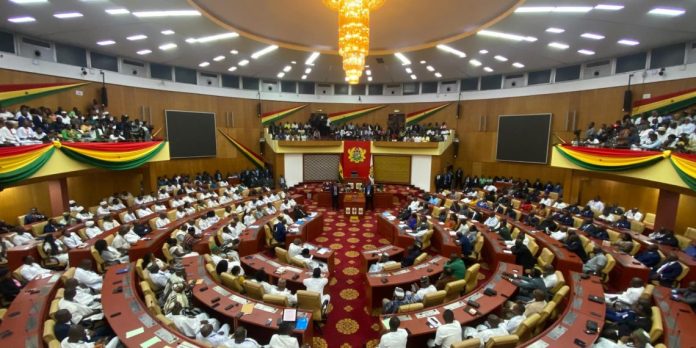Parliament has approved a financing agreement of $360 million between the Government of Ghana and the International Development Association (IDA) of the World Bank Group. This funding will support the country’s economic recovery following the recent crisis and contribute to long-term resilience.
The financing is part of the Second Resilient Recovery Development Policy Financing (DPF) operation. It aims to strengthen Ghana’s fiscal consolidation efforts, enhance the financial sector, promote energy sector reforms, and improve social and climate resilience. The agreement was presented to the House and reviewed by the Finance Committee, which shared its report in Parliament this week.
According to the Committee, these funds are essential for maintaining the current momentum in macroeconomic stabilisation and implementing reforms as part of the government’s Post-COVID-19 Programme for Economic Growth (PC-PEG).
Key Areas of Focus
The financing is structured around three main pillars:
Restoring Fiscal Sustainability – The facility will help consolidate gains made under the IMF-supported programme, particularly in domestic revenue mobilisation, public financial management, and debt transparency.
Strengthening Financial Sector Stability and Energy Sector Reform – It aims to enhance the operational and financial viability of the energy sector and improve risk-based supervision of financial institutions.
Enhancing Social, Climate, and Economic Resilience – This includes expanding access to social protection, addressing gender gaps, and improving climate-responsive planning and spending.
Favourable Terms
The loan comes with highly concessional terms, including a 1.25% service charge, no interest, a 5-year grace period, and a 30-year repayment schedule. The Committee emphasised that the facility is aligned with Ghana’s medium-term debt strategy and will not unduly burden the country’s debt sustainability outlook.
Background and Context
This facility is part of a broader World Bank support package to Ghana, which also includes investment lending and technical assistance. It complements earlier budgetary support under the first Resilient Recovery DPF and is designed to reinforce ongoing reforms under Ghana’s IMF programme.
The Committee, chaired by Hon. Isaac Adongo, recommended the agreement for adoption after noting that the terms were favourable and the intended reforms were essential for building a more resilient and inclusive economy.
The motion was subsequently adopted by Parliament, clearing the way for the Ministry of Finance to access the funds and commence implementation of the outlined policy actions.
By: Abigail Arthur


